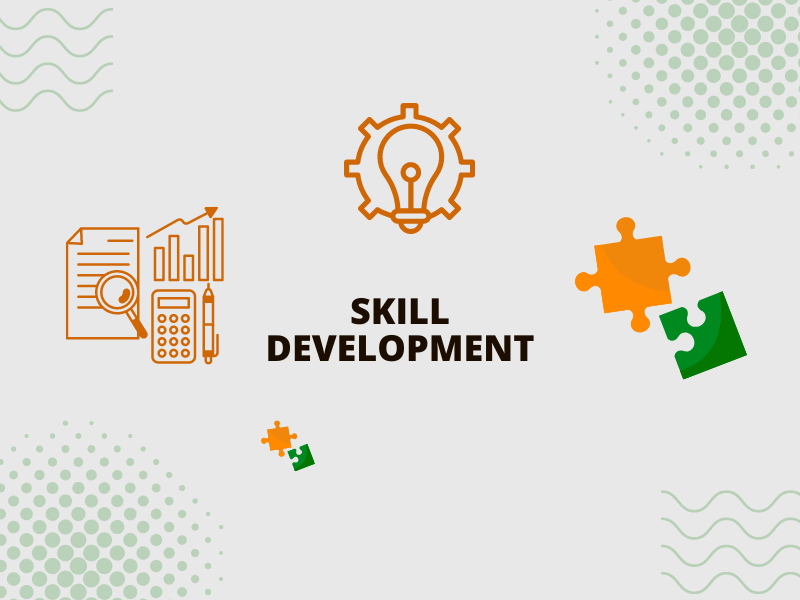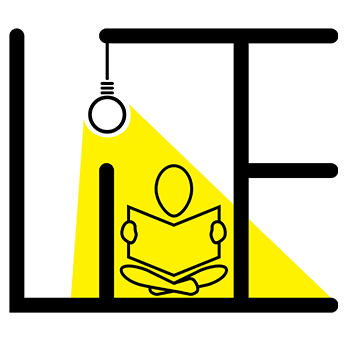In today’s rapidly evolving job market, the phrase “skill development” has taken centre stage, redefining the way we approach education and employment. Skill development refers to the process of enhancing an individual’s abilities, expertise, and competencies to meet the demands of various industries. As the landscape of employment undergoes transformative changes, the importance of skill development programs alongside formal education has become more evident than ever before. Basic life skills, such as effective communication, critical thinking, and problem-solving, hold the potential to transform lives by enhancing personal growth, employability, and adaptability. With the realization that conventional education might not fully equip individuals with the practical skills needed in the professional realm, skill development programs offer a complementary approach to learning, ensuring that candidates are prepared to thrive in the dynamic job market of the 21st century.
Why Skill Development Programs Matter
Formal education undoubtedly equips individuals with foundational knowledge, but the integration of skill development programs is vital to bridge the gap between theoretical learning and real-world application. While conventional education imparts academic knowledge, skill development programs focus on honing practical skills, making graduates more job-ready and adaptable. Moreover, as industries evolve at a rapid pace, skills that were once relevant can quickly become obsolete. Skill development programs ensure that individuals stay relevant in a dynamic job market. As technology advances and industries undergo a transformation, the ability to demonstrate tangible skills becomes a key differentiator in securing employment. Skill development programs empower individuals to proactively shape their careers by equipping them with the tools to meet industry demands, fostering a symbiotic relationship between education and employment.
Empowering Employment through Skills
The unique advantage of skill development programs lies in their direct contribution to employment. Conventional education often falls short of providing the specific skills demanded by industries. Skill development programs, on the other hand, are meticulously designed to align with market needs, making candidates more attractive to potential employers. This targeted approach allows individuals to enter the workforce with a competitive edge, increasing their chances of securing meaningful employment. Moreover, skill development programs are not limited to a single sector; they span a wide range of industries, from technology and healthcare to manufacturing and hospitality. This diversity means that individuals from various backgrounds can find programs tailored to their interests and strengths, leading to a more inclusive and versatile workforce. The impact of skill development programs extends beyond personal employability. It has a positive ripple effect on the economy as a whole, driving productivity and innovation. With skilled individuals driving industries forward, societies can experience enhanced economic growth and overall prosperity.
Upskilling and Reskilling
Skill development programs play a crucial role in fostering continuous learning among professionals. In an era where industries rapidly evolve and new technologies emerge, staying relevant in the job market demands constant upskilling and reskilling. These programs offer avenues for professionals to acquire new skills or enhance existing ones, ensuring that their expertise remains aligned with the changing demands of their field. Whether it’s acquiring advanced technical skills, adapting to new software, or mastering emerging trends, skill development empowers individuals to embrace lifelong learning, enhancing their employability and ensuring their ability to contribute effectively to their respective industries.
Navigating the Professional Path
Traditional education often follows a predetermined academic trajectory, while skill development programs are tailored to specific career paths. This targeted approach equips candidates with specialized expertise in their chosen field. This not only accelerates their job search but also positions them as professionals with hands-on experience and practical knowledge, making them an asset to employers from day one. Skill development programs also foster a sense of direction, as individuals can choose programs that align with their passions and strengths, enabling them to embark on a meaningful career journey. This shift towards professional specialization addresses the changing needs of industries and promotes a workforce that is adaptable, skilled, and ready to take on the challenges of today’s dynamic job market. By integrating skill development programs into the education landscape, countries can bridge the gap between formal education and industry demands, fostering a win-win scenario for both job seekers and employers.
Skill Development Programs in India
India’s commitment to skill development is clearly reflected in its array of programs and initiatives. The National Skill Development Corporation (NSDC) plays a pivotal role in this endeavour, forging partnerships across industries to create skill development programs that cater to the evolving job landscape. Beyond the national level, several states have also taken proactive measures. Kerala, for instance, stands out with initiatives like the Additional Skill Acquisition Programme (ASAP), which focuses on equipping young individuals with skills that directly align with industry requirements. Such programs not only bridge the gap between education and employment but also contribute to the overall economic growth of the nation by nurturing a skilled and job-ready workforce.
ASAP: A Kerala Model
The Additional Skill Acquisition Programme (ASAP) in Kerala serves as an exemplary model for skill development. Focusing on the “learning by doing” approach, ASAP partners with various industries to create training modules that align with market demands. By offering a wide range of skill development courses, ASAP equips candidates with skills that are directly transferrable to the workplace, enabling them to secure suitable employment.
Website: www.asapkerala.gov.in
The Way Forward
In an era where the job landscape is characterized by rapid technological advancements and changing industry needs, skill development has emerged as a catalyst for meaningful employment. The integration of skill development programs alongside formal education not only enhances the employability of candidates but also contributes to economic growth by supplying a workforce equipped with industry-relevant expertise. The success stories of skill development programs like ASAP in Kerala stand as a testament to the transformative impact of skill-based learning, unlocking doors of opportunity for individuals seeking a successful and fulfilling career path.
Seamless Transition from Learning to Earning
Skill development programs serve as a bridge that seamlessly connects the learning journey to the realm of earning. These programs arm individuals with hands-on skills that can be directly employed in a professional context. This capability not only readies candidates for the intricacies of their roles but also empowers them to make immediate and meaningful contributions to their workplaces. The essence of skill development lies in this smooth transformation from being learners to active participants in the workforce, which not only accelerates career growth but also bolsters the productivity and effectiveness of the job market.
Addressing the Skill Gap
In the contemporary job landscape, the persistent skill gap stands as a prominent obstacle. This disparity, rooted in the mismatch between job seekers’ competencies and employers’ requirements, is effectively tackled through skill development programs. These initiatives assume a crucial role in narrowing the gap by delivering tailored training that directly corresponds to industry demands. This not only enhances candidates’ employability quotient but also aids industries in sourcing skilled and capable professionals. The symbiotic relationship between skill development programs and industry needs creates a win-win scenario, paving the way for a more harmonious job market.
Promoting Entrepreneurship
Skill development programs extend their influence beyond conventional career trajectories, serving as catalysts for fostering entrepreneurial ambitions. These initiatives go beyond imparting technical skills and encompass areas such as business strategy, marketing, and financial acumen. By arming individuals with the tools to launch and sustain their own ventures, these programs play a pivotal role in cultivating entrepreneurship. This entrepreneurial spirit, in turn, has a multiplier effect on economic progress and job generation, transforming individuals from mere job seekers to innovative job creators. The convergence of skill development and entrepreneurship paints a vibrant picture of a self-reliant and dynamic workforce contributing to both personal growth and national development.
Elevating Socio-Economic Status
Skill development programs stand as a potent tool for elevating the socio-economic status of individuals and communities alike. These programs go beyond imparting technical proficiency; they empower individuals with the means to secure gainful employment and realize their economic potential. By equipping people with job-relevant skills, skill development programs break the chains of unemployment and underemployment, fostering economic independence. This positive transformation reverberates through families and communities, as increased income and stability lead to improved living standards, better access to education and healthcare, and overall upliftment of socio-economic conditions. The direct link between skill development and enhanced socio-economic status is a testament to the transformative power of acquiring practical competencies in today’s competitive world.
The Future of Skill Development
In the face of evolving industries and rapid technological progress, the trajectory of skill development gains even more significance. The forthcoming work landscape is expected to prioritize individuals equipped with not only adaptable but industry-tailored skills. Here, skill development programs emerge as pivotal agents, ensuring a workforce that doesn’t merely possess current competencies, but is primed to adeptly navigate the dynamic shifts in employment trends. As automation and digitization redefine job requirements, skill development will stand as the bridge between traditional education and the ever-changing demands of the job market, fostering professionals ready to embrace the challenges of the future.
Conclusion
In the ever-changing landscape of the modern job market, skill development programs stand as a beacon of hope, bridging the gap between knowledge and practical application. By infusing individuals with industry-relevant skills, these programs serve as a potent remedy to the persistent issue of unemployment. As the Indian economy undergoes dynamic shifts, the integration of skill development with formal education is not just a strategic move, but a necessity. It’s a symbiotic relationship that empowers learners to thrive in an evolving professional world while ensuring industries access a workforce equipped with the skills they demand. As we embrace skill development’s transformative power, we pave the way for a brighter future, where every individual possesses the capabilities to not only secure meaningful employment but also contribute significantly to the growth and prosperity of our nation.

